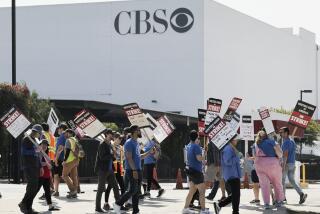Draft Agreement Expected Soon on Tobacco Lawsuits
CHICAGO â U.S. tobacco companies and their foes are expected to draft a preliminary agreement to settle health-related lawsuits within 10 days, said Mississippi Atty. Gen. Mike Moore, a leading anti-tobacco negotiator.
Cigarette companies have agreed to make concessions on all but one key public-health issue, agreeing to restrict youth access to cigarettes and provide funding for the Food and Drug Administration, Moore and other anti-tobacco negotiators told about 100 public-health advocates in Chicago.
After seven months of talks, negotiations will resume today with both sides focused on two remaining issues: the FDAâs regulation of nicotine, and how much money the industry will pay to settle suits and be shielded from future litigation.
âYouâve just gone too far down the road now that itâs probably going to happen,â said Steven Mitchell, a portfolio manager for Burgundy Asset Management in Toronto.
In Washington, meanwhile, the Federal Trade Commission charged No. 2 cigarette maker R.J. Reynolds Tobacco Co. with using its Joe Camel cartoon character to target youth smokers, a move designed to restrict the companyâs use of one its most successful advertising campaigns.
Moore said the industry has already agreed to the ban.
The tobacco industry and its opponents had hoped to reach an agreement by the end of this week, because the first state trial against the industry is slated to begin July 7 in Mississippi. Moore, while cautioning there is no guarantee an agreement will be forged, said heâs optimistic that a pact will be reached within a week and a half.
âI have about two more weeks that I am going to put into this process,â Moore said.
Negotiations will continue through the weekend in New York to hammer out the final details of an historic agreement in which the companies would pay as much as $375 billion over 25 years to settle suits brought by smokers and states seeking to recover costs of treating smokers.
The companies would cut back on cigarette marketing and cede regulatory control of nicotine to the government. In return, the industry would settle hundreds of lawsuits and be shielded from future litigation.
The negotiators will include representatives of Philip Morris, RJR and other cigarette makers as well as attorneys general from states that have sued the industry, private lawyers representing smokers and public-health advocates.
An agreement that would limit the rights of smokers to sue tobacco companies in the future would need approval from Congress and the White House. The Clinton administration would more likely back a proposal that was targeted at reducing teen smoking.
Industry spokesman could not be reached for comment.
The FTCâs commissioners voted 3 to 2 to charge New York-based RJR with using Joe Camel to target children. It is seeking an order that would bar the characterâs use in places likely to be seen by children and require it to conduct a public education campaign discouraging underage smoking.
The complaint represents a new line of government attack on cigarette advertising.
Moore and other anti-tobacco negotiators faced some of their most vocal opponents in Chicago to build consensus among public-health advocates.
The proposed settlement calls for bans on cartoon characters like Joe Camel and outdoor advertising and âno more sponsorships, no more race cars,â Moore told the crowd. Advertising on the Internet would be banned as well.
In addition, tobacco companies would pay $500 million a year to fund anti-tobacco campaigns. The money would be directed by the U.S. Department of Health and Human Services, which oversees the FDA, the negotiators said.
Not everyone at the meeting signed on with the negotiators. When one attendee asked why not just continue to fight in court, Moore said attorneys have had mixed results in court.
âFifty years have been pretty much a failureâ in the courtroom, Moore said.
Another person asked Moore what guarantees he had that once a settlement was sent to Congress, that tobacco lobbyists wouldnât be able to change the law. Moore said there are no guarantees, but that heâs counting on a veto from President Clinton if Congress radically changes what was sent to Washington.
Matt Myers, a leading health advocate in the talks, stressed that negotiators would insist on giving the FDA nicotine control.
Lonnie Bristow, former head of the American Medical Assn. stressed pragmatism among the health groups.
He said he and his 300,000-member group wonât judge the proposal âuntil all the cards have been turned over.â
* MORE WOE
The FTC says R.J. Reynoldsâ Joe Camel ads unfairly target kids. A1
More to Read
Get the L.A. Times Politics newsletter
Deeply reported insights into legislation, politics and policy from Sacramento, Washington and beyond. In your inbox three times per week.
You may occasionally receive promotional content from the Los Angeles Times.










